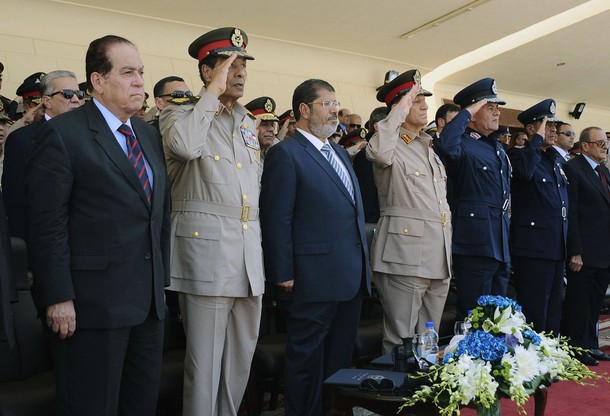Sometimes perception is actually more important than reality. Although the US has appropriated millions of dollars to assist Egypt’s democratic transition—with programs to strengthen the private sector, stimulate economic activity, develop political skills, and encourage civic participation—a recent visit to Cairo confirmed that most Egyptians feel that the United States has done absolutely nothing to support them in this critical moment of change.
In private meetings this week, officials from the Ministry of Foreign Affairs, high-level military leadership, and members of the American-Egyptian Chamber of Commerce clearly stated that while many promises have been made from President Barack Obama and Secretary of State Hillary Clinton, none have been delivered.
Now, if taken as a literal statement, we know this is not true. As noted in my recent report assessing US and EU assistance to the Arab transitioning countries, “Arab Awakening: Are the US and EU Missing the Challenge?” the United States has granted $165 million for projects in Egypt, and in December 2011 Congress authorized new programs specifically for Egypt that carry a price tag of more than $2 billion.
The problem is that the big ticket items, including the $1 billion debt swap, more than $1 billion in OPIC financing, and $60 million in initial capitalization for a joint Egyptian/American-led Enterprise Fund have not moved forward. And the initiatives that the US State Department, US Agency for International Development (USAID), and the office of the US Trade Representative (USTR) are laboring to put in place are either not recognized or not valued by our Egyptian counterparts. Why is this? Part of this is the disconnect between very high expectations set by Obama’s compelling speeches pledging US support for democratization in the Arab world and what has actually been delivered; part is the crisis in bilateral relations caused by the Egyptian government’s crackdown on US and Egyptian civil society organizations that slowed many of these initiatives; part is the painfully slow process of appropriations, contracting, and implementation; and part is the small-scale nature of the projects that will likely not touch the daily lives of most ordinary Egyptians struggling to make ends meet.
Unless American officials want to face palpable frustration and disappointment from its Egyptian interlocutors—not to mention losing the modicum of confidence the Egyptian people still have in the United States—Clinton will need to deliver some serious dollars. The expectations, once again, are high for her planned visit to Egypt later this month, which may or may not be postponed due to President Morsi’s recent action challenging the dissolution of the People’s Assembly decreed by Egypt’s Supreme Constitutional Court. Either way, the transfer of executive authority from the military council to a democratically-elected civilian president on June 30 validates the feeling among many Egyptians that their government is now entitled to US aid.
The sense that Egyptians have almost given up on American support can be felt among liberals and conservatives alike. One indicator of this sentiment is that Morsi’s first overseas trip is to Riyadh, not Washington. Egypt has three months at most before its foreign reserves hit zero, which would halt payments for critical food imports and could prompt economic collapse. Despite vast political differences, it is Saudi Arabia that will likely bail out the Egyptian government, not the US Treasury or the International Monetary Fund, where the US holds significant sway.
However, it’s not too late for the United States to step up to the plate and assume its rightful role—as Egypt’s friend (sometimes offering constructive criticism), supporter, and partner in its most delicate and precarious moment of democratic exploration. This isn’t a call for a blank check with no strings attached, but Egypt stills needs the United States, and frankly, the United States still needs Egypt. Regional stability and American national security interests will be better served with Egypt as a financially-stable ally committed to the rule of law and democratic principles. More importantly, the very credibility and momentum of the democratic experiment in the Middle East rests on the success of Egypt’s transition. To help underscore this commitment, the US should continue to leverage its relationships to push the IMF and the Egyptian government to agree on $3 billion deal, work with other Gulf donors to put together a coordinated package of assistance based on economic reforms, provide immediate economic assistance focused on job creation, and indicate that a US Free Trade Agreement is now on the table. While this likely still falls short of expectations, at least these measures would help restore some lost credibility and open a more positive page in the Egyptian-American relationship.
Danya Greenfield is deputy director of the Council’s Rafik Hariri Center for the Middle East.
Image: egyptianleaders.jpg
